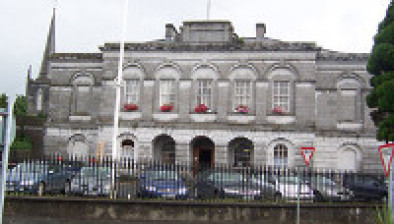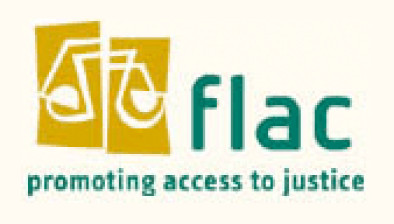High Court: Leave granted to apply for judicial review of decision to terminate legal aid certificate

The High Court has granted leave to apply for judicial review of the Legal Aid Board’s decision to revoke a legal aid certificate which had originally been granted in the context of intended proceedings to set aside a 1988 judgment.

About this case:
- Citation:[2024] IEHC 265
- Judgment:
- Court:High Court
- Judge:Mr Justice Garrett Simons
Delivering judgment for the High Court, Mr Justice Garrett Simons warned: “It should be emphasised that this judgment is delivered in the context of a leave application only. By definition, it does not involve a final determination of the legal issues raised. This judgment should not, therefore, be understood as authority for a broader proposition that the Appeals Committee of the Legal Aid Board is precluded from ever using a formulation of the type employed in this case.”
Background
The applicant intended to set aside a judgment delivered by the High Court in 1988 on appeal from the Circuit Court. The 1988 judgment concerned a claim for compensation pursuant to the Malicious Injuries Act 1981 by a company controlled by the applicant and his parents which had been damaged by fire. The High Court had refused the application on the basis that the fire had not been caused by a third party.
The applicant’s position was that the 1988 judgment was procured by fraud and perjury on part of an expert witness of the local authority, and inter alia that it implied that the fire had been deliberately caused by him and his father.
In 2019, the applicant approached the Legal Aid Board seeking a legal aid certificate in respect of his intended proceedings to set aside the 1988 judgment. The Board obtained an opinion from counsel which canvassed the “substantial legal obstacles” which the applicant would need to overcome, leading to the solicitor handling the file to reject his application in September 2020.
The applicant ultimately appealed to the Appeals Committee of the Legal Aid Board, and in an unreasoned decision, a legal aid certificate was granted on 7 May 2021. In January 2022, his counsel explained that he would be unable to sign off on the applicant’s proposed proceedings having regard to the Code of Conduct of the Bar of Ireland which provides that a barrister shall not settle pleadings claiming fraud without express instructions and without having satisfied himself that there is or will be evidence to support that claim at trial.
Extensive correspondence between the applicant and the Legal Aid Board ensued, culminating in in the withdrawal of his legal aid certificate in April 2023, which inter alia noted the concerns of counsel that pursuing the proceedings on the basis of fraud might not meet the threshold set out in sections 24 and 28 of the Civil Legal Aid Act 1995 in that there needed to be a reasonable grounds to institute the proceedings and a reasonable prospect of success.
The applicant appealed to the Appeals Committee, with the Committee refusing his appeal on 15 May 2023, stating only that “the Committee has upheld the decision to terminate the legal aid certificate on the same grounds and for the same reasons as the Executive”.
The applicant sought to challenge that decision by way of judicial review proceedings issued on 15 August 2023, on grounds of the inadequacy of reasons, the legal standard which should have been applied by the Legal Aid Board in deciding whether to terminate his certificate, and in respect of the requirements of section 28(5)(a) of the 1995 Act.
The High Court
Mr Justice Simons considered that the only apparent material change in circumstances which had occurred since the date of the decision to grant the applicant’s legal aid certificate was the indication by counsel that he would not be in a position to sign off on the intended proceedings.
Noting that the fraud element was only one of the potential remedies identified by counsel in his opinion, the judge stated that “no explanation has been provided as to why it is that the Appeals Committee considered that the alternative avenues of redress posited by counsel do not meet the statutory threshold of a reasonable likelihood of success”.
The judge found that having regard to Connelly v. An Bord Pleanála [2018] IESC 31, [2021] 2 I.R. 752 it was necessary to consider the entirety of the material available to the applicant, noting: “If an applicant has already been provided with detailed and consistent advice from solicitor and/or counsel which clearly explains why their proposed proceedings do not meet the statutory threshold of a reasonable likelihood of success, then there might not be any need for elaboration by the Appeals Committee.”
Deciding to grant leave only because of the “unusual features identified” and the existence of an apparent discrepancy between the decisions of the first and second Appeals Committees, Mr Justice Simons proceeded to consider the second ground before him.
The High Court opined that the applicant’s contention that a legal aid certificate could only be terminated where the intended proceedings are “manifestly unfounded” or “manifestly inadmissible” was “radical” in circumstances where the ordinary and natural reading of the 1995 Act is that the same legal test governs the grant and revocation of a legal aid certificate.
Noting the applicant’s reliance on the caselaw of the Court of Justice of the European Union and the European Court of Human Rights in support of his contended threshold, Mr Justice Simons pointed out that the Board had not engaged at all with the caselaw cited by the applicant and as such, “it would not be appropriate for the High Court to dismiss the Applicant’s reliance on this case law peremptorily, by refusing leave to apply in respect of this category of grounds”.
Moving to the applicant’s third ground, concerning the obligation under section 28(5)(a) of the 1995 Act to provide legal aid where the State is required to do so pursuant to an international instrument, the court considered the applicant’s contention that the European Convention on Human Rights and the Charter of Fundamental Rights of the European Union were two such instruments.
Again, Mr Justice Simons highlighted that the Board had neither stated what it believed to be the correct interpretation of section 28(5) nor had it referred to any caselaw which addressed the interpretation of same. Consequently, the judge found that the applicant had met the threshold of arguability in respect of that ground.
Conclusion
Accordingly, Mr Justice Simons granted leave to set aside the decision of 15 May 2023 terminating the applicant’s legal aid certificate and in respect of the declaratory reliefs sought.
Prendergast v Legal Aid Board [2024] IEHC 265








